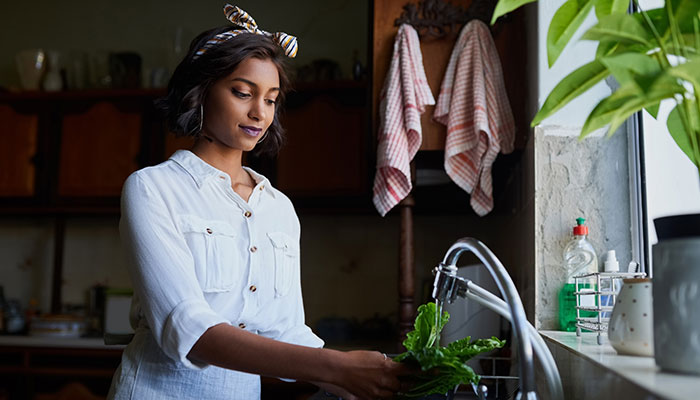Pregnancy and Environmental Risks
BIDMC Contributor
AUGUST 23, 2019
 Whether you're trying to get pregnant, newly pregnant or already postpartum, new parents are often offered advice from others on how to best take care of themselves for the good of the baby. "There's a ton of advice out there for new or expecting parents that can be a bit overwhelming," says Blair Wylie, MD, MPH, Director of Maternal-Fetal Medicine at BIDMC. "We get a lot of questions about potentially harmful exposures that might impact a pregnancy." For example, some environmental toxins pose risks on pregnancy outcomes such as miscarriage, low birth weight, preterm birth or birth defects. Others may interfere with the normal development of the child, including possible effects on the child's behavior and ability to learn.
Whether you're trying to get pregnant, newly pregnant or already postpartum, new parents are often offered advice from others on how to best take care of themselves for the good of the baby. "There's a ton of advice out there for new or expecting parents that can be a bit overwhelming," says Blair Wylie, MD, MPH, Director of Maternal-Fetal Medicine at BIDMC. "We get a lot of questions about potentially harmful exposures that might impact a pregnancy." For example, some environmental toxins pose risks on pregnancy outcomes such as miscarriage, low birth weight, preterm birth or birth defects. Others may interfere with the normal development of the child, including possible effects on the child's behavior and ability to learn.
While some environmental factors – like air pollution – may be out of your direct control, there are a few simple guidelines, Wylie says, that you can follow as a precaution to help reduce your risk and protect your baby's health. "We know a lot about the impact of certain exposures, such as mercury and lead, but less about other exposures, such as phthalates that are found in some cosmetics," Wylie explains. Below is some helpful information to help determine what's best for you.
Before and During Pregnancy
It's important to speak with your doctor as you begin family planning to review medications and possible environmental exposures. "Your physician will review your medications to make sure everything is okay to take if there's a chance you could become pregnant," Wylie says.
What To Avoid
If trying to conceive, you should limit your exposure to:
- Fish with high mercury levels: This means not eating swordfish, shark, tilefish and others that contain high mercury levels. A common misconception, however, is avoiding all fish during pregnancy. "Eating fish that is low in mercury and high in omega-3 content, such as salmon, is excellent for the developing brain of the baby," Wylie says.
- Exposure to lead: A common source of lead exposure is through lead paint (common in older homes). If your house was built before 1978, you should avoid any home renovations while you're pregnant.
- Pesticides in food, gardens, pets: Wash all produce, and consider eating organic fruits and vegetables, although the price tag can be prohibitive for many. Avoid using pesticide sprays in your garden and tick/flea collars on your pets while pregnant.
- Endocrine disruptors: Certain chemicals that can interfere with your hormones may also be important to avoid. Common hormone disruptors include:
- Phthalates, which can be found in some perfumes and other cosmetics, and some cleaning products.
- BPA (bisphenol A), found in plastics and some food packaging.
- Parabens, found in some deodorants and other hygiene products.
There are substitutions you can make – like only using glass or metal containers – to protect yourself during your reproductive years.
"I remind my patients that while you want to do what's best for your baby, it's also important to continue on with daily life," Wylie says. "It can be stressful, but the fact that you worry about what's best already shows you're going to be a loving and responsible parent."
The Division of Maternal-Fetal Medicine is part of the Department of Obstetrics and Gynecology at BIDMC. We offer a variety of services for patients throughout pregnancy.
